Julia Kelly's Blog, page 9
June 10, 2019
A Perfectly British Summer Drink
Since moving to London, I’ve realized that there are a few reliable clues that summer is coming. People start wearing light jackets rather than heavy ones. Tennis players start thinking about dusting off their tennis whites. And the Pimms begins to flow.
If you aren’t familiar with Pimms, it’s an herbal-ish drink made from Pimm’s No. 1 Cup, lemonade, fruit, cucumber, and mint. Think British sangria, minus the wine.
In the UK, you can buy Pimm’s in cans, but that takes all of the romance out of the drink. Instead, break out your best water pitcher and mix up a batch. Just be careful. Depending on who’s mixing the drink and whether they add anything “special” to it (i.e. gin), it can be more potent than you think.
Julia’s Perfect Pimm’s
250ml Pimm’s No. 1 Cup
500ml British-style lemonade*
Orange, sliced
Strawberries, sliced
Cucumber, sliced
1 bunch mint leaves
Ice cubes
Slice your fruit and cucumber. (The beauty of Pimm’s is that you can customize how much fruit you really want). Place the fruit, mint, and ice into a large pitcher. Pour in your Pimm’s and lemonade over and stir. Pour out your Pimm’s and be sure to eat the liquor-soaked fruit when you reach the end of the jug. Enjoy with friends or (safely) by yourself. We won’t judge.
*British lemonade is not like American lemonade! It’s a slightly fizzy drink that’s more lightly sweet than sharp. In a pinch try flavoring sparkling water with a couple squeezes of fresh lemon.
March 4, 2019
Let Me Read You a Story
Well, not me. Lucy Brownhill.
You see, Lucy is the incredibly talented narrator of the The Light Over London’s audiobook. And it’s just your luck that I’m able to share a special preview today.
I absolutely love audiobooks, and would love to hear what you think of them too. Just leave me a comment below!
March 1, 2019
Sharing Long Ignored Stories This Women’s History Month
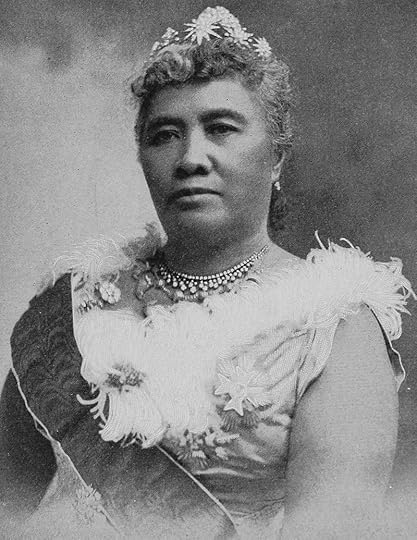
Lili’uokalani, the first queen regent of Hawaii and last sovereign of Hawaii
When I was starting university, I had doubt what I wanted to study. For years I had been telling people I wanted to pursue a PhD in history and eventually become a university professor. That career ambition lasted all of three semesters as I quickly realized that academic life wasn’t for me, but my love for the actual study of history never wavered.
History for me has never been about dates and facts—the often dry approach that can so easily turn people off from the subject in school. It’s about story, and since my main focus was on social history it’s always been about the story of people.
In my freshman year, my eventual advisor nudged me toward studying gender and sexual during the Victorian era. I fell in love with this rich area of history, mostly because it was filled with stories. Women’s stories. History had slowly been waking up to the value of telling the often ignored stories of women throughout history, but what I was studying still felt new, exciting and—sometimes—dangerously subversive.
Now, well into my writing career, it’s no surprise that women’s stories thread through all of my historical fiction. I’ve written about Victorian governesses, artists, and shop owners. I’ve written about Gunner Girls in World War II who manned anti-aircraft guns and threw themselves into danger to help Britain win the war. Each of these characters were based on real people who left behind fascinating records of their lives, if only we cared to look.
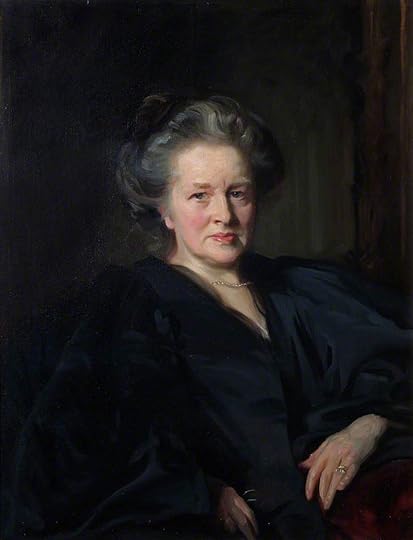
Elizabeth Garrett Anderson, the first woman to qualify as a physician and surgeon in the United Kingdom
The extraordinary thing about all of this isn’t necessarily the way these women lived their lives—often they were just doing what it took to survive or make their way in the world. It’s how many people don’t know their stories. The Gunner Girls are truly heroes of World War II, but when I begin to tell people about the plot of The Light Over London, I’m usually met with “Oh, I think I’ve heard something about them” at best and “I had no idea” at worst.
It feels a bit absurd that it is 2019 and we feel a need to designate a month to women’s history in 2019 when—to paraphrase a woman famous for making her own history—women’s history is history. Still the lack of general knowledge of women’s contribution to every aspect of world history is undeniably widespread. This is only compounded when looking to women from different racial or cultural backgrounds.
And so the need for a Women’s History Month each March persists. This year, I’m celebrating with 31 days of stories, photographs, videos, and songs on Twitter, Facebook, Instagram, and Pinterest that highlight a woman who made a significant contribution to or is notable for her place in history. My hope is that men and women alike will stumble upon these and their interest will be sparked to learn more about these extraordinary women.
February 27, 2019
The Woman With the 5 Million Franc Price on Her Head

In researching my book The Light Over London I was continually amazed at the many—often unsung—ways women contributed to the war effort in Britain during World War II. The Lightseekers is an ongoing series of articles that highlights some of their work and the ways they brought light to Britain in one of its darkest times.
One of my favorite bars in London is called the American Bar in the Stafford Hotel on St. James Place. You can imagine my delight then when I realized that the American Bar was also a favorite haunt of Nancy Wake, one of the most dynamic, fascinating spies of World War II.
Born in New Zealand in 1912 and raised in Australia, Wake ran away from home at 16. She used £200 that she’d inherited from an aunt to get herself to New York City and London where she trained as a journalist. In the 1930s, she was a European correspondent for the Hearst newspaper group, and while she was working in Vienna she witnessed the rise of the Nazi party and its terrorism of Jewish people.
Wake was living in Marseille with her French industrialist husband, Henri Edmond Fiocca, when Germany invaded in 1940. As an interned person, she quickly became involved in the fight against the Germans as a courier for the French resistance. At this time, she also began to work for Captain Ian Garrow’s escape network, which smuggled Allied internees, POWs and other people out of France to Britain.
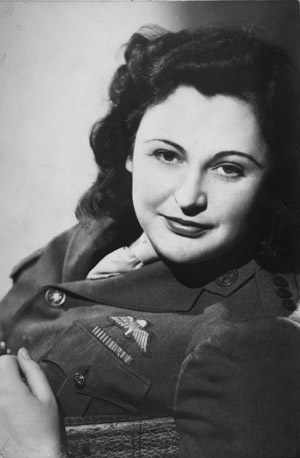
Wake’s status as the wife of a wealthy industrialist afforded her privileges others didn’t have including the ability to travel more freely than most people. However, Wake also freely admitted to using her sexuality to move through German checkpoints, calling herself “a flirtatious little bastard.”
“A little powder, a little drink on the way, and I’d pass their posts and wink and say, ‘Do you want to search me?’”
Wake was so successful as an agent that the Gestapo began calling her the “White Mouse” because, despite suspecting her of working for the resistance, the Germans could never catch her doing anything criminal. To try to catch her, they tapped her phone and began to intercept her mail. Wake was eventually arrested in Toulouse but released after four days after one of her fellow resistance fights lied about her being his mistress, claiming that they needed to hide her identity from her jealous husband. (None of which was true.)
By November 1942, Wake was the most wanted person in Marseille with a 5 million franc price on her head. Garrow had been betrayed and arrested, but he was able to escape France into Spain. Wake continued his work, but eventually her life was in so much danger that became necessary for her to flee. She also escaped from France into Spain through the Pyrenees after seven attempts. (For those who have read The Nightingale by Kristin Hannah, this is the crossing that is described in harrowing detail during parts of that narrative.)
After her escape, Wake made her way to Britain. However, her husband stayed behind and was captured. Despite being tortured, he refused to betray her, and the Gestapo executed him. Wake didn’t learn of his death until after the war.
In Britain, Wake joined the Special Operations Executive. She was a good shot, fearless, and fiesty. Vera Atkins, who oversaw all SOE agents in France, called her “a real Australian bombshell” who “put the men to shame by her cheerful spirit and strength of character.”
“A little powder, a little drink on the way, and I’d pass their posts and wink and say, ‘Do you want to search me?’”
Wake would go on to prove that strength of character over and over. She once parachuted into Auvergne where she was discovered tangled up in a tree by Captain Henri Tardivat who ran a group of rural guerrillas fighting against the occupation (a maquis). He reportedly said, “I hope that all trees in France bear such beautiful fruit this year.”
“Don’t give me that French shit,” she replied.
Wake recruited members to the maquis, and was involved in multiple attacks on key strategic points including bridges, convoys, and railway track. She once rode a bicycle 190 miles and back in 72 hours through German checkpoints in order to send a message to London when her wireless operator was killed. (She later called this “bike ride” her proudest moment.) She could also be ruthless, such as the time when she killed an SS man with her bare hands or when resistance men were dithering about killing a girl who was a German spy. Wake said she’d kill the girl herself if they wouldn’t. The men finally performed the execution themselves.
The maquis Wake operated in was such a thorn in Germany’s side that 22,000 soldiers were sent to defeat them. The maquisards suffered only 100 casualties. The Germans suffered 1,400.
After the war, Wake was widely decorated, receiving honors including three Croix de Guerre, the U.S. Medal of Freedom, and Britain’s George Medal. She continued to work in intelligence at the British Air Ministry—with a brief stint in Australia for a political career that never got off the ground—before marrying an RAF officer in 1957 and moving back to Australia.
Wake’s husband died in 1997, and in 2001 she moved back to London, taking up residence at the Stafford Hotel. It had been a haven for British servicemen and American GIs during the war, and the general manager of the American Bar at the time was a fellow resistance worker from Marseilles. She would visit the bar every morning for her first gin and tonic of the day, and there is now a plaque commemorating her in the bar.
At the end of her life, Wake moved to a home for ex-service men and women, where she lived until her death in 2011 at the age of 98. Her ashes were scattered at a ceremony in the woods outside Verneix in France. Determined that it should be a celebratory occasion, Wake left instructions that there should be a boisterous drinks party afterward.
Wake wrote about her extraordinary experiences in her autobiography The White Mouse. If you are interested in reading more about her and other women spies in World War II, I would recommend The Women Who Spied for Britain by Robyn Walker.
Read every story of the The Lightseekers in the series archive . You can also learn more about their stories by following the hashtag #TheLightseekers on Instagram , Facebook , Twitter , and Pinterest .
February 19, 2019
Your Questions Answered
One of my favorite things about being an author is talking to readers. With The Light Over London launching on both sides of the pond, readers have been emailing me with all sorts of questions about the book. I’ve decided I want to pool those questions and answer them during a Facebook Live video this March.
So, tell me, what do you want to know? Where did I get the idea for The Light Over London? What's it like living in London? Who are my favorite authors?
Just leave your comment on this post. (It’s okay if you just want to say hi.) Then be sure to like my Facebook Page so that you won't miss my Facebook Live with all of the answers!
February 13, 2019
Love Is in the Air (So Let's Celebrate with Free Books)
February is the month of love, so I’m happy to show my love for my readers by announcing another Goodreads giveaway for The Light Over London!
All you have to do to enter is click on this link and keep your fingers crossed for a Kindle edition of the book. This giveaway runs until February 22nd and is open to US readers only.
Good luck, and happy reading!
February 6, 2019
The Light Over London Is Out at UK Retailers
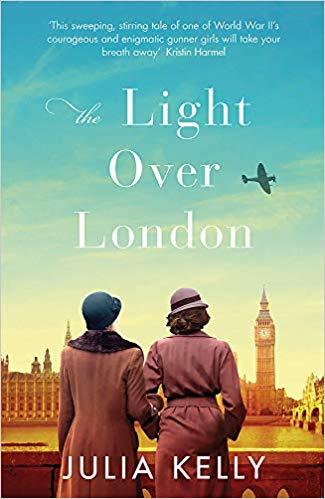
UK readers, the wait is over! If you’ve been waiting to snag a hardcover copy of The Light Over London, it’s now available for you to purchase. You can buy the book from these fine retailers:
Amazon UK | Waterstones | WH Smith
I would love to see you guys reading your copies of The Light Over London. You can do that by using #TheLightOverLondon on social media or joining my reader Facebook group.
February 2, 2019
Speaking Event: "How To Write Romantic Novels and Get Published" at Pimlico Library
London-based readers, I have an author appearance to tell you about, just in time for the release of The Light Over London in the UK.
if you’ve ever wanted to write romantic fiction, I will be speaking at Pimlico Library with Brigid Coady on writing the genre and getting your books published. This is a great chance to ask lots of questions about ideas, structure, and writing process. You’ll also have the chance to ask about the publishing both in the US and the UK.
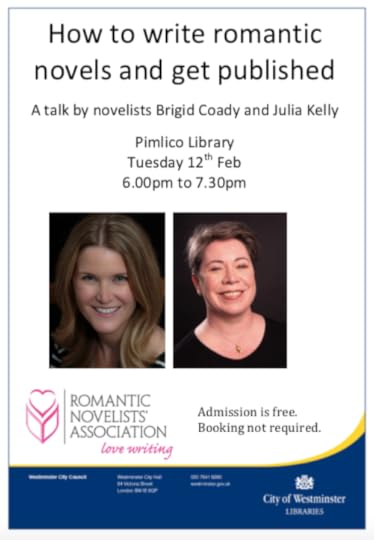
“How To Write Romantic Novels and Get Published” with Brigid Coady
Tuesday, February 12 from 6 to 7:30 p.m.
Pimlico Library, Lupus St, Pimlico, London SW1V 3AT
January 28, 2019
Author Reading: Listen to an Exclusive Excerpt of The Light Over London Read Out Loud
There is a fantastic audiobook of my international best-selling historical women's fiction novel The Light Over London out now, but I'm giving an author reading my level best to share a little bit of this new book with you.
January 24, 2019
The Light Over London Is a Canadian Bestseller!
Release weeks are always exciting, and none was more exciting that that for The Light Over London because I found out that the book debuted at #8 on the Toronto Star’s Original Fiction list.
Even better? The book rose a spot this week to #7!
The love that Canadian readers have been showing to this book is just extraordinary, and I wanted to say thank you from the bottom of my heart!



